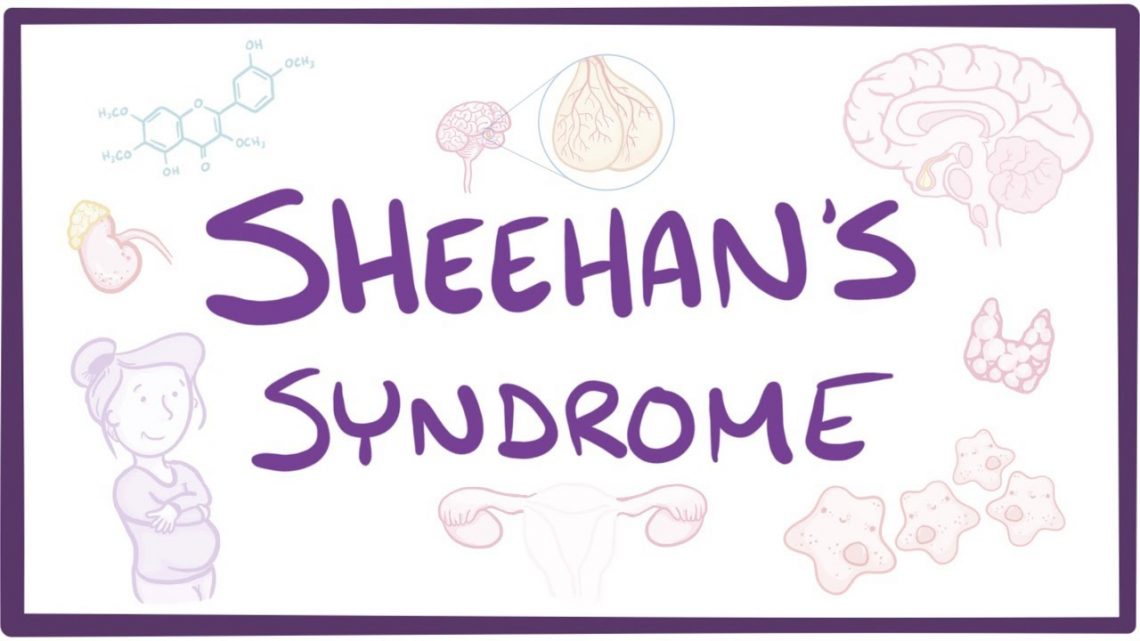
Sheehan’s syndrome is a condition that affects women who lose a life-threatening amount of blood in childbirth or who have severe low blood pressure during or after childbirth, which can deprive the body of oxygen. This lack of oxygen that causes damage to the pituitary gland is known as Sheehan’s syndrome.
The pituitary gland sits at the base of the brain. It produces hormones that oversee the function of the body’s other glands. That’s why it’s nicknamed “the master gland”. This gland is more vulnerable to injury in labor, because it grows bigger during pregnancy.
Symptoms
Signs and symptoms of Sheehan’s syndrome typically appear slowly, after a period of months or years. But sometimes problems appear right away, such as the inability to breast-feed.
Signs and symptoms of Sheehan’s syndrome occur because of having too little of the hormones the pituitary gland produces. Signs and symptoms include;
- Difficulty breast-feeding or an inability to breast-feed
- No menstrual periods or infrequent menstruation
- Inability to regrow shaved pubic hair
- Slowed mental function, weight gain and difficulty staying warm as a result of underactive thyroid (hypothyroidism)
- Low blood pressure
- Low blood sugar
- Fatigue
- Irregular heartbeat
- Breast shrinkage
For many women, Sheehan’s syndrome symptoms are often thought to be caused by other things. Fatigue, for instance, is commonly experienced by new mothers. They might not realize they have Sheehan’s syndrome until they need treatment for thyroid or adrenal insufficiency.
Causes
A lack of oxygen to the pituitary gland during childbirth causes Sheehan syndrome. Excess blood loss or very low blood pressure in labor can deprive the pituitary of the oxygen it needs to function.
Factors that make a woman more likely to have severe blood loss include;
- Placenta abruption, when the placenta nourishes the unborn baby detaches from the uterus
- Placenta previa, when the placenta partly or totally covers the cervix (the bottom part of the uterus that connects to the vagina)
- Giving birth to a large baby, who weighs more than 8.8 pounds (4,000 grams), or having multiples, like twins
- Preeclampsia, high blood pressure during pregnancy
- Assisted labor, a forceps or vacuum-delivery
Treatment
Lifelong hormone replacement therapy for the hormones that are missing. This may involve treatment with glucocorticoids. After hormone profiling, treatment with cortisol, ACTH, thyroid hormones, gonadotropins, and prolactin as seen in cases of hypopituitarism may occur.
What We Offer
We at Almurshidi Medical Tourism will find the best doctors to cater to your needs. We are partnered with a wide network of hospitals and clinics that provide top quality medical experience.
We provide free medical estimates, make medical appointments, and provide several medical opinions if needed at no cost.
Contact Us
For more information contact us at +66822004040 or via WhatsApp








